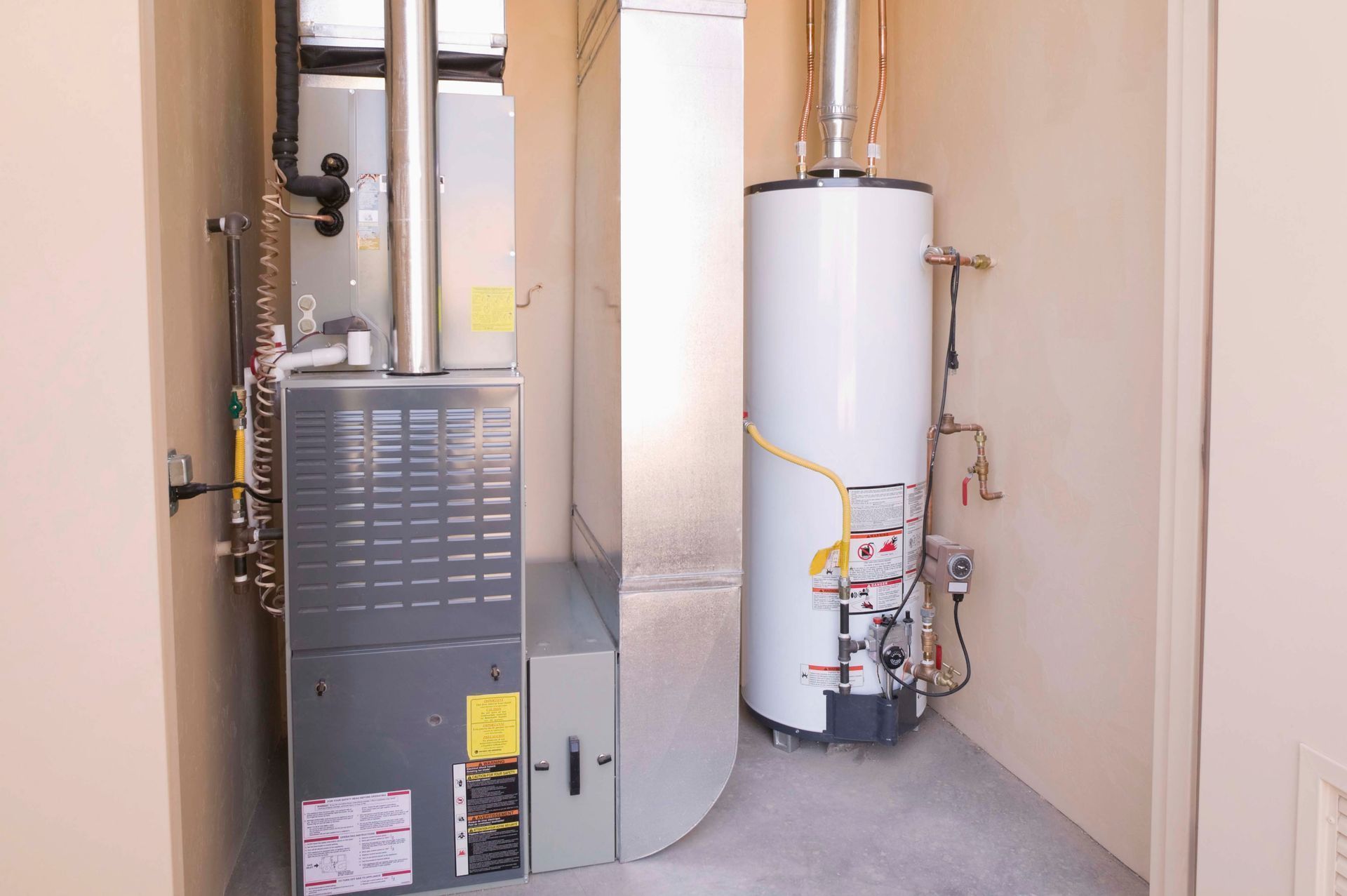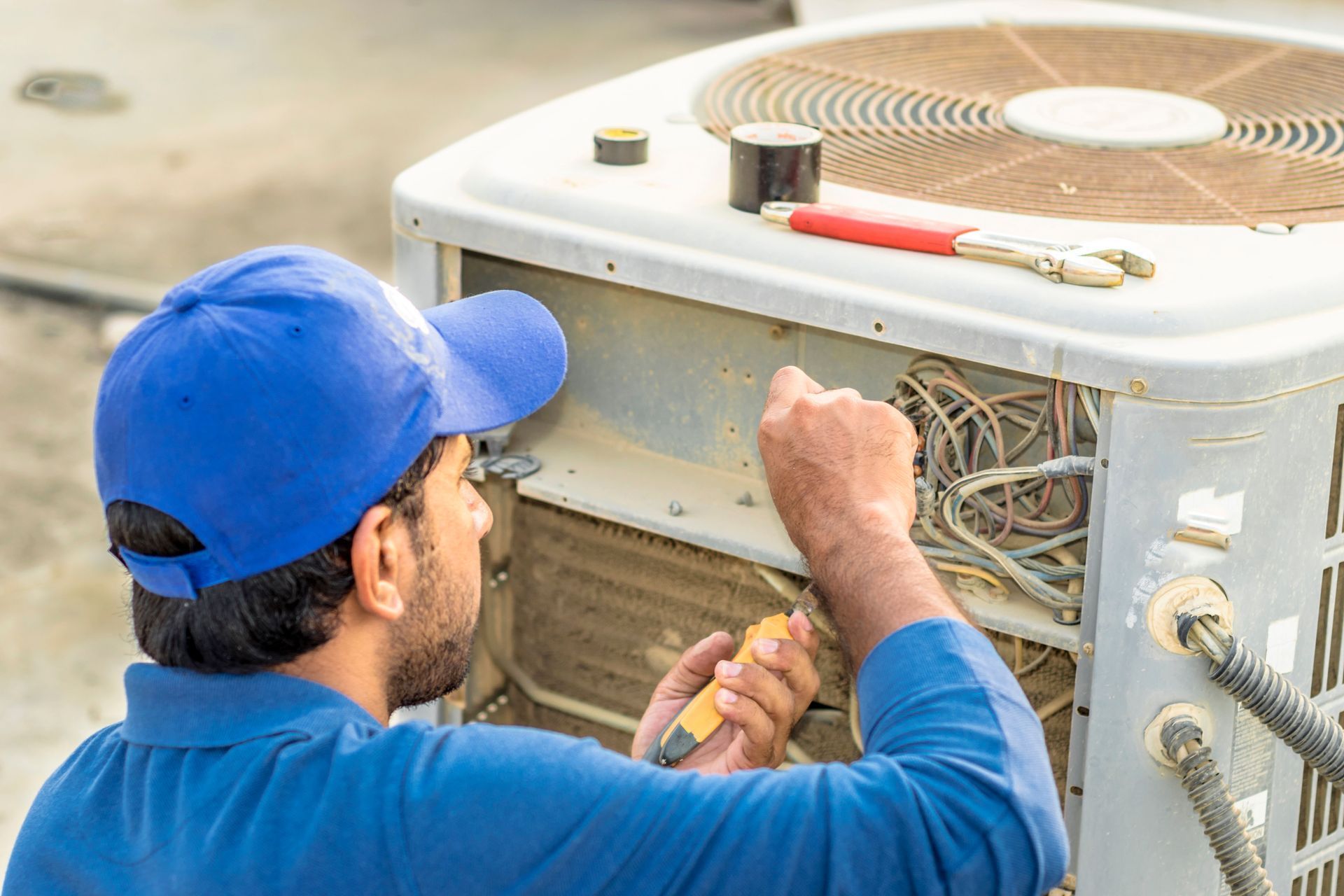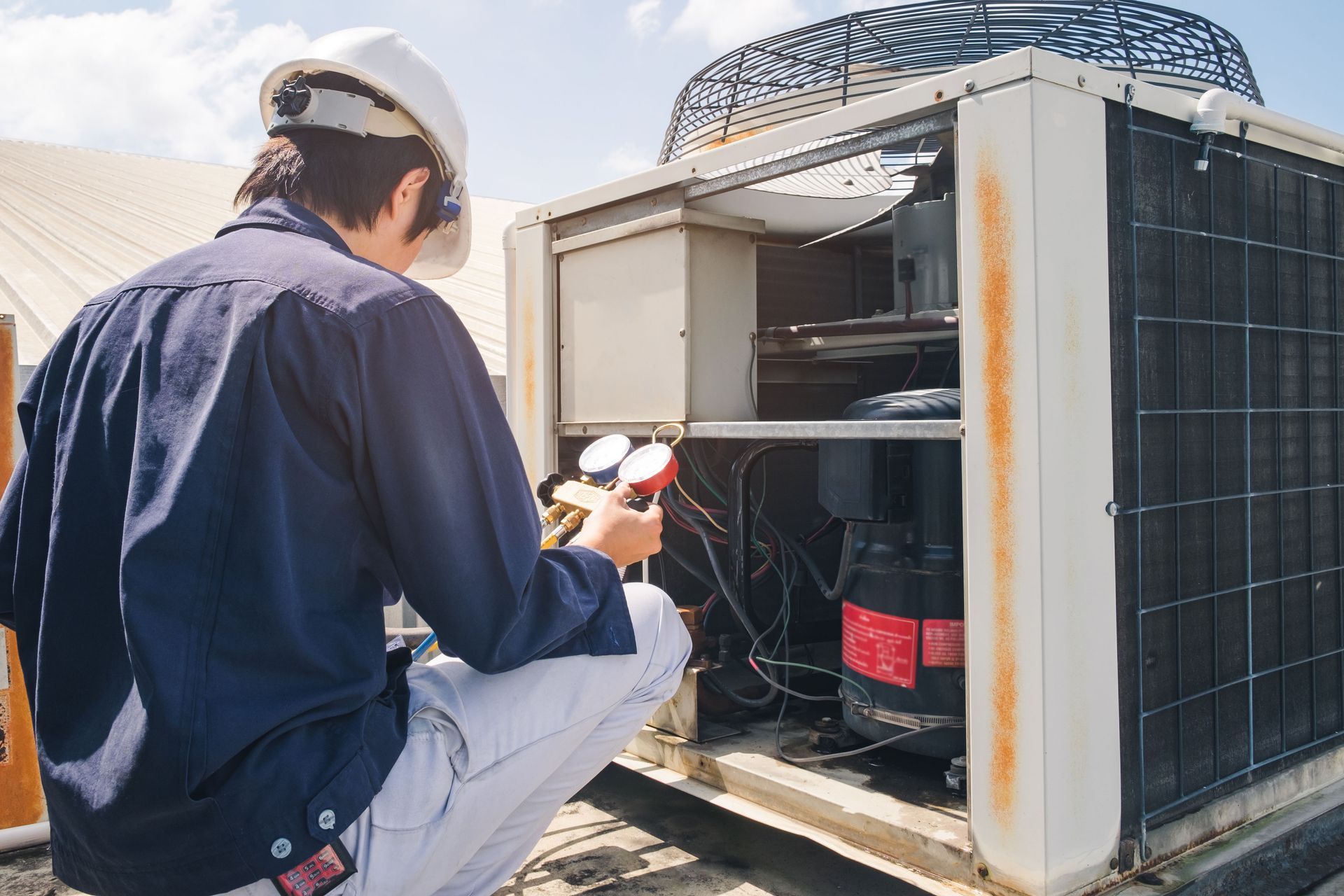July 28, 2025
Choosing between water heater replacement and repair can feel overwhelming. Your water heater is essential to daily life—everything from showering to dishwashing depends on it. When problems arise, you'll inevitably ask yourself: is it better to repair the existing unit or invest in a new one? At Triangle Repair Group Heating & Cooling, we're here to help you weigh your options.
Evaluating the Age vs Investing in a New Unit
If your unit is more than a decade old, it's likely operating with reduced efficiency and nearing the end of its usable life. Repairing an aging unit may only delay the inevitable and cost more in the long run. On the other hand, choosing water heater replacement means upgrading to a newer, more efficient model, potentially saving you money on energy costs and reducing the risk of future issues. Modern units often include better insulation, electronic controls, and enhanced safety features. Investing in a new system can offer peace of mind for years to come.
Evaluating Repair Costs vs Replacement Costs
Some repairs are inexpensive, such as replacing a heating element, thermostat, or sacrificial anode rod. In our experience typical repair costs range from $150 to $600, depending on parts and labor. These repairs can be budget-friendly in the short term. However, a full water heater replacement, which includes removal, installation, and a new unit, generally costs between $800 and $2,500 or more, depending on tank size, fuel type, and energy efficiency ratings. While the upfront cost is higher than a repair, newer units often offer long-term savings, better performance, and fewer service calls down the line.
Evaluating Energy Efficiency vs Continuing With the Status Quo
Efficiency is a major factor in the decision. According to the U.S. Department of Energy, water heating accounts for about 18% of your home's energy use and is typically the second largest energy expense in any home. By choosing water heater replacement with a high-efficiency model, you can significantly reduce your monthly utility bills. In contrast, repairing your current unit may restore functionality but won't necessarily improve efficiency. Continued use of outdated systems could mean missing out on saving hundreds of dollars annually through updated technology.
Evaluating Emergency Situations vs Planned Improvements
If your water heater suddenly fails, repairing it may be the fastest route to restoring hot water. Replacing a heating element or thermostat can often be done within a day, which minimizes downtime and keeps your household running smoothly. However, if your water heater is underperforming but not completely broken, proactively planning a water heater replacement gives you time to budget, research your options, and schedule installation at your convenience. This approach eliminates the stress of last-minute emergencies and helps you make a decision that aligns with your long-term goals.
Evaluating Performance Issues vs System Overhaul
Common issues like fluctuating water temperature, noisy operation, or insufficient hot water can often be resolved with a repair. Technicians can flush sediment, replace worn-out parts, or adjust thermostat settings to get your system working again. But if these issues occur frequently or if your household has outgrown the water heater's capacity, a water heater replacement might be a better solution. A modern unit can provide more consistent performance, faster recovery times, and quieter operation, while eliminating the need for frequent service visits.
Evaluating Fuel Type Efficiency vs Upgrading Technology
Many traditional water heaters run on electricity, natural gas, or propane. Each fuel type varies in terms of cost, efficiency, and availability. When you choose water heater replacement, you have the opportunity to explore switching fuel types or upgrading to advanced technologies. Tankless models and hybrid heat pump water heaters, for instance, can dramatically improve energy efficiency—sometimes reducing water heating costs by up to 50% compared to older systems. Making this change during replacement can set you up for long-term savings and better environmental performance.
Evaluating Environmental Impact vs Sustainable Investment
From an environmental perspective, repair can reduce immediate waste. Keeping your current water heater running avoids contributing to landfill and supports a more sustainable short-term choice. However, a new unit is likely to operate far more efficiently and produce fewer emissions, especially with high-efficiency gas models or electric heat pumps. If the old unit is responsibly recycled, water heater replacement can become a more sustainable long-term investment that reduces your home's carbon footprint.
Evaluating Time-to-Repair vs Downtime with a New System
When time is critical, a repair can often restore your system quickly. In many cases, flushing sediment or replacing a broken valve can be done within a few hours. That speed can be crucial for large families or households with young children. Alternatively, if you have a flexible schedule or want to avoid recurring problems, scheduling a water heater replacement may be a better fit. With expert installation from Triangle Repair Group Heating & Cooling, the process can be completed efficiently—typically in just a few hours—minimizing disruption while maximizing long-term benefits.
Evaluating Safety Risks vs Peace-of-Mind Solutions
Older water heaters can develop hidden safety risks, such as rusting tanks, faulty valves, or electrical issues. Even when opting for repair, it's important to have a certified technician conduct a full safety inspection to ensure your unit is operating properly. Choosing water heater replacement, however, eliminates many of these concerns. A brand-new system includes modern safety mechanisms, advanced insulation, updated venting, and compliance with the latest building codes. These features provide peace of mind that your household is protected.
Evaluating Cost to Value vs Long-Term Gain
If your water heater only requires a single fix and is otherwise functioning well, repair offers a cost-effective solution with immediate value. However, if you're spending money on frequent repairs, those costs can add up fast, sometimes even exceeding the price of a new unit. In this case, water heater replacement becomes a better financial decision. A properly installed water heater offers decades of reliable service, reduced maintenance, and greater energy savings, making it a smart long-term investment.
Evaluating Complexity of Upgrades vs Simplicity of Fixes
Some repairs are relatively simple and can be completed quickly, like replacing a thermostat or flushing the tank. Troubleshooting is often straightforward, and parts are generally easy to find. When you need fast results, this approach works well. On the other hand, water heater replacement involves a more in-depth process. You'll need to consider tank size, fuel type, venting, energy efficiency, and placement. That said, the experienced team at Triangle Repair Group Heating & Cooling makes it easy by managing every step of the replacement process—from removing the old unit to installing the new one and ensuring it meets all safety and performance standards.
Evaluating Return on Investment vs Peace of Mind
For many homeowners, budget plays a major role in the decision. If your financial priority is to minimize immediate expenses, repair is often the right move. It gets the job done quickly and stretches the life of your current system. But if your goal is long-term comfort and security, water heater replacement is the better choice. New models deliver improved efficiency, warranty protection, quieter operation, and fewer disruptions, giving you peace of mind for years to come.
Deciding between water heater replacement and repair depends on multiple factors, including the age of your unit, its current performance, energy efficiency, safety, warranty coverage, and overall cost. If your water heater is less than eight years old and only has an isolated issue, a repair is likely the right call. If your system is over 10 years old, has recurring problems, or fails to meet your household's demands, replacement becomes the smarter option. In emergencies, repair can offer immediate relief, while planned upgrades allow you to choose the perfect model without pressure.
At Triangle Repair Group Heating & Cooling, we can help you determine whether repair or
water heater replacement
is the right move for your home. Our licensed technicians offer transparent guidance, expert service, and professional installation for long-lasting performance. Whether you need fast repairs or you're ready to explore new models, reach out today. Let's make sure your water heater works as hard as you do—efficiently, safely, and reliably.













